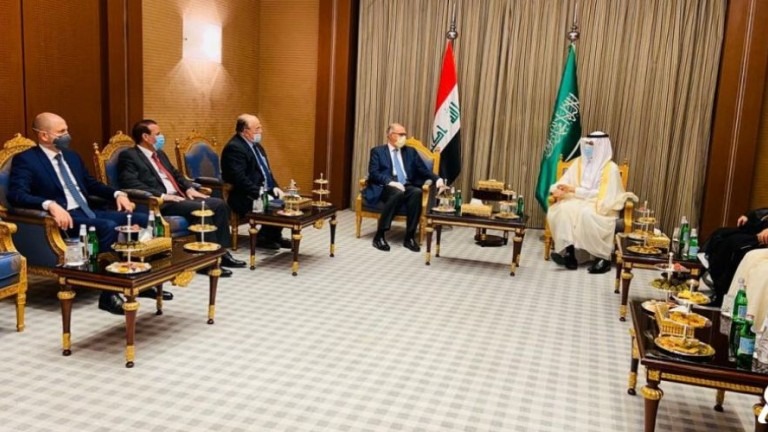In an interview with the website of the Strategic Council on Foreign Relations, Davood Ahmadzadeh commented on the reasons for the people’s opposition and said: From the point of view of the majority of the people of Iraq, especially the Jihadist groups such as Hashd al-Shaabi, any Saudi economic and military assistance can be considered as the resumption of Saudi interference in the country’s internal affairs.
As for the reasons for the Al-Kadhimi government’s tendency to expand relations and even put the Iraqi water and soil resources at the disposal of Saudi Arabia, Ahmadzadeh noted: Although the Islamic Republic has a strong presence in the region, especially in Iraq, due to the sanctions it has no possibility to expand and deepen economic relations with Baghdad. Therefore, Saudi Arabia is trying to prevent the spread of the Shiite activity in the Middle East by providing economic assistance while weakening relations between the two neighbours in various fields and by creating a balance of power.
He added: Nevertheless, the Iraqis have so far shown no interest in Riyadh’s contributions, and that country has not been able to do what it did in recent years with the Lebanese economy, with the Iraqis.
According to the expert, the recent relations between Iraq and Saudi Arabia have also received the support of the American administration, as the Iraqi government has always been under pressure due to having strong relations with Iran and the Axis of Resistance.
Saying that Iraq has been turned into the main axis of rivalry between Iran and Saudi Arabia to determine the political weight of the two countries in the future equations of the region, Ahmadzadeh further remarked: In addition to the geopolitical position and economic capabilities (oil and gas reserves), there are other influential components which have intensified continuity of the rivalries. Therefore, Iraq will continue to face difficult conditions, despite its efforts to be safe in the current situation.
At the same time, despite opposition to cooperation between Baghdad and Riyadh and transfer of Iraqi agricultural lands to the Saudis, Mustafa al-Kadhimi continues to justify his move. Regarding this point, the expert on the Middle East affairs referred to the recent remarks of the Iraqi Prime Minister, who had said, ‘has investment turned into colonialism?!’ He added: Al-Kadhimi claims that Saudi investments create job opportunities for hundreds of thousands of the Iraqis. Therefore, it is necessary to create an environment that supports the investor and not seeks ransom from it. Saudi Arabia has made investments in the field of agriculture. The remarks of the Iraqi Prime Minister show that this Iraqi technocrat politician has no other choice to overcome the current situation and improve the economic situation in his country.
Ahmadzadeh also noted that the Iraqi government has faced civil unrest in recent years due to the corruption and constant political disputes between the current rulers, and said lack of presence of infrastructure for rebuilding the country and attacks by the Takfiri groups were among other reasons.
He added: Therefore, the government of Mustafa al- Kadhimi, which came to power with the promise of rebuilding the country, boosting business and providing security, is still facing economic and political crises and has not been able to solve the prevailing problems. Al-Kadhimi’s government is a technocratic government that was supposed to create new conditions for Iraq by reducing tensions and balancing relations with the neighbours. According to Ahmadzadeh, Iraq is openly facing a series of political unrest today. Undoubtedly, the failure to meet the demands of the people in the economic and political spheres and the emergence of widespread corruption in the administration of the country will create the conditions for the resurgence of popular discontent. On the other hand, foreign interference, especially the presence of American forces in Iraq and non-compliance with the approvals of the Iraqi parliament to determine the exact timing for the withdrawal of those forces is among the main causes of disunity in the political situation in Iraq.
In conclusion, the expert stressed that in order to predict the future of the developments in Iraq and the country’s relations with Iran and Saudi Arabia, we have to wait for the next developments in Iraq, and perhaps the situation will change with Biden coming to power and change in Iran-Saudi relations.










0 Comments